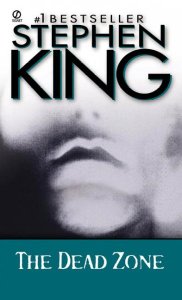 So a businessman and his son go into a downtown Miami hotel suite to meet with a potential client who might help boost their meager income. Instead, a man with whom they have a dispute steps out, shoots the father in the knee, drags the son up some stairs, then shoots him execution-style. The father escapes, gets out the door, and bangs on the door across the hall, leaving blood in the hall, but the import-export businessman in that room doesn’t hear a thing, including the shots that then kill the father. Neville Butler, who has been held hostage in the room since before the father and son arrived, is then released.
So a businessman and his son go into a downtown Miami hotel suite to meet with a potential client who might help boost their meager income. Instead, a man with whom they have a dispute steps out, shoots the father in the knee, drags the son up some stairs, then shoots him execution-style. The father escapes, gets out the door, and bangs on the door across the hall, leaving blood in the hall, but the import-export businessman in that room doesn’t hear a thing, including the shots that then kill the father. Neville Butler, who has been held hostage in the room since before the father and son arrived, is then released.
Following Butler’s call to the police, British businessman Krishna Maharaj is detained. After waiving his Miranda rights, he makes inconsistent statements to the investigators, who hold him long enough to discover that his fingerprints are in the hotel room, and Maharaj is arrested and charged with first-degree murder for the executions of Dwight and Duane Moo Young, former associates and now rivals for Maharaj’s Caribbean newspaper. The case goes to trial. Maharaj, a flamboyant millionaire, hires the lowest bidder, Mark Hendon, as his attorney. The trial proceeds in a swift and orderly manner, except that the presiding judge is replaced after three days of testimony. Based on fingerprint evidence, a ballistics expert’s identification of Maharaj’s gun, and Neville Butler’s testimony, Maharaj is given life in prison for Dwight’s murder, and the death sentence for Duane’s.
After several years, the case comes to the attention of Clive Stafford Smith, an attorney specializing in capital cases. On his own, taking time away from his fledgling non-profit practice focusing on Louisiana death penalty cases, Smith begins reviewing the case, and this open-and-shut case turns out to have been far more complex than the trial transcript would indicate. His early investigation turns up boxes of evidence and interview materials that hadn’t been made available to the defense, prosecutors’ notes indicating that they instructed the detectives and their chief witness how to perjure themselves, and witnesses that prove that Maharaj wasn’t even in Miami at the time of the killings. Some of his basic rights—over and above their violation of his Miranda rights—were not explained to him or put into practice. Forensic evidence was questionable, but Maharaj’s trial attorney didn’t cross-examine, and even rested without calling a single witness. Confident that the reams of documentary evidence show that Maharaj did not receive a fair trial and that his counsel was (to put it mildly) incompetent, Smith heads into the appeals process.
But door after legal door is slammed in Maharaj’s face. The appeals courts won’t consider new evidence—it wasn’t presented in a timely manner and appellate courts don’t try the facts of the case. Each attempt to reopen the case takes months, if not years, to litigate, partially because a prosecutor won’t accept plentiful evidence that her colleagues convicted an innocent man. When he’s finally granted a new trial, Smith can’t introduce all the new evidence and Maharaj is again found guilty. But because the jury doesn’t prescribe the death penalty, Maharaj’s future opportunities for appeal are severely limited—capital cases usually get at least a cursory glance. Based on all the trials and appeals that go before, Maharaj’s last chance—a reprieve from Florida Governor Charlie Crist—is denied.
Unfortunately, as Smith details, Maharaj’s case is only one example of the miscarriage of justice that capital crimes nearly always involve. From personal experience and well-documented cases, Smith demonstrates that each individual misstep in the justice system that Maharaj experienced is echoed across the country, even in non-capital cases. Part of it is the culture, and he shows that from the patrol officer to the US Supreme Court, the fundamental conservatism of the law is geared towards convictions, not justice or even truth. The real poverty of this view is that convicting the innocent allows the guilty to go unpunished.
Smith’s writing is urgent, and his construction of the story maximizes both the drama and the documentation of his fundamental thesis. As he breaks the case down, the depth of the law enforcement and judicial errors becomes appallingly clear. The parallels he establishes between Maharaj’s case and convictions across the country point to the idea that the American justice system has reversed its supposed ideal. At the same time, his admiration for Maharaj (which is echoed by everyone from business associates to prison guards) as a man shines through. Even after being in prison since 1987—including 10 years on Death Row—Maharaj remains kind, gentle, and positive.
This is a timely book. States have begun to revisit their commitments to the death penalty after subsequent investigations and trials have freed other innocent people from Death Row. It is increasingly likely that people known to be innocent were executed anyway. If someone heeds Clive Stafford Smith’s plea to come forward and exonerate Krishna Maharaj, it would be a miracle; if others use his case to strengthen their calls for an end to the death penalty, it would be a huge step to ending the gaping flaws in our (in)justice system.
Check the WRL catalog for The Injustice System
Read Full Post »
 Five centuries after the birth of Christ the ancient Mediterranean world was booming; architecture, literature, trade, and philosophy, were experiencing great leaps in development. In Constantinople, Justinian was trying to hold together the Roman Empire despite inroads from barbarians from all directions. By all accounts he was an able (if at times brutal) leader, but he was unable to fight the first pandemic of Bubonic plague. From 541-542 it is estimated to have killed 25 million people, depopulating cities and perhaps leading to the shape of the modern world from the European nation states to the rise of Islam.
Five centuries after the birth of Christ the ancient Mediterranean world was booming; architecture, literature, trade, and philosophy, were experiencing great leaps in development. In Constantinople, Justinian was trying to hold together the Roman Empire despite inroads from barbarians from all directions. By all accounts he was an able (if at times brutal) leader, but he was unable to fight the first pandemic of Bubonic plague. From 541-542 it is estimated to have killed 25 million people, depopulating cities and perhaps leading to the shape of the modern world from the European nation states to the rise of Islam.



















